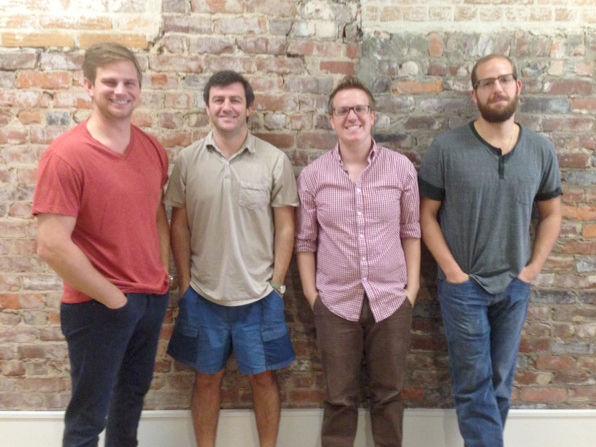When Auburn University alumni Stephen Vlahos and Cameron Doody began to pursue entrepreneurial careers, they founded Bellhops, their own moving company, back in 2011. Little did they know that the business would become a nationwide enterprise with more than 80 employees from NC State alone.
The company serves more than 120 cities in 42 states and contracts more than 8,000 student bellhops. With moving services in high demand, Bellhops’ customers range from college students to senior citizens all across the country.
Matt Patterson, the chief operating officer of Bellhops, explained his involvement and the process by which they manage thousands of employees.
“Bellhops started as a collegiate moving company,” Patterson said. “It was basically just moving college students at first. The entire student community moves in such a short time period, so you have a massive amount of moving going on. There’s never been a good answer to that. People just ask friends to help.”
Patterson said that because traditional moving companies can only do a certain amount of jobs per day, they are not a factor in collegiate moving. Vlahos and Doody wanted to make a way to bridge this gap in order to provide college students with sufficient moving services.
“At the start, we thought we’d do 25 moves in total and ended up doing 250 at Auburn,” Patterson said.
Patterson came on board in 2012 after graduating from the University of Alabama. While the company started as an idea among college graduates eager to dive into the business world, Bellhops expanded rapidly from the get-go.
At the time Patterson joined, Vlahos was the only full-time employee. By then, Bellhops had expanded to eight schools and was still a collegiate moving company. However, all three board members were ready to take it to the next level.
“We figured that if it worked at Auburn, it could work elsewhere,” Patterson said. “We knew we really had something, so we quit our jobs and worked it full time.”
Patterson said one of the things that really sets them apart is that they allow bellhops to choose their own jobs, which is why they hire so many college students.
“Our bellhops are entrepreneurs,” Patterson said. “We don’t ever tell our bellhops where to be. We post all our jobs and they log in and get to choose on a first-come, first-serve basis which jobs they want, which elevates our customer service. Because we did not tell anyone to be there at 8 a.m. on Saturday morning, we have guys who want to be there. We’re looking for hard-working guys, and we have a culture based on effort, going above and beyond for customers.”
Patterson said the company encourages its bellhops to do things such as buy water bottles for their customers to show that they are committed to doing their jobs.
“One thing that we bring to the moving industry is trust and comfort,” Patterson said. “We are sending the customers pictures of the bellhops that will be working with them beforehand, so that they see the guys’ faces before they get there.”
Patterson said one niche industry they have come across is furniture installations. According to Patterson, when new apartment complexes and dorms are going up that are unfurnished, somebody has to install 800 beds in that 800-unit complex.
“We have projects going on in 13 different cities right now, and that’s something we want to expand,” Patterson said. “Right now we’re committed to the moving sector, but we’re always interested in other ways to provide opportunities for our bellhops.”
According to their website, Bellhops’ mission is to “connect awesome people who need help with awesome people who want to work.”
“In a lot of ways we consider 2013 our first year,” Patterson said. “We went on a massive expansion. We don’t own any trucks or any real estate. In 2013, we went to 47 cities and had a really great year. We also started adding local community to our services as well. Collegiate moving is still a big part of our business, but we now operate on a year-round basis.”
Doody, the co-founder of Bellhops, also gave some advice for college students interested in pursuing entrepreneurial careers.
“I think one of the biggest issues in our country right now is smart people aren’t doing things,” Doody said. “They’re going out and working for companies that already exist. Some of our best talent gets snagged right out of school and put into these corporations where they don’t have the freedom to innovate. You don’t have to have a perfect idea, you just have to start executing on something and you’ll learn how to adapt the company to fit the needs.”








